What are Skin Analyzers?
Skin analyzers are sophisticated devices designed to assess and diagnose a variety of skin conditions, offering an in-depth understanding of an individual's skin health. Utilized by dermatologists, aestheticians, and beauty salon professionals, these analyzers aid in identifying skin issues that might not be visible to the naked eye. The technology behind skin analyzers is rooted in bioengineering principles and often involves the use of imaging technologies, sensors, and data analysis algorithms to provide a comprehensive skin evaluation.
These devices serve a crucial purpose for skincare professionals who need to customize their treatments according to each client’s unique skin characteristics. Skin analyzers systematically examine factors such as hydration levels, oil content, texture, pore size, pigmentation, and signs of aging like wrinkles or fine lines. Some even employ UV light to reveal underlying sun damage not apparent under normal lighting conditions.
The process typically involves capturing images of the skin's surface and sometimes the layers beneath. Advanced software interprets these images to provide detailed reports that can forecast the onset of certain conditions or track the progress of existing ones. This enables professionals to recommend targeted skincare regimens and treatments that are more likely to be effective for the specific needs of each client.
Types of Skin Analyzers
The market offers a variety of skin analyzers tailored for different needs and applications. Recognizing the specific type that fits a particular use case is essential for professionals operating in the beauty industry.
3D Facial Analysis Devices: These analyzers capture high-definition images from various angles to create a three-dimensional model of the client's face. They are especially useful for tracking changes over time and are common in settings where precision is paramount, such as cosmetic surgery clinics.
Portable Skin Scanners: These handheld devices are popular among mobile beauticians and small salons for their convenience and ease of use. They can be used for basic skin assessments like hydration levels and pigmentation.
Multi-Spectral Imaging Systems: Offering a more advanced analysis, these systems use different wavelengths of light to uncover deeper skin issues such as blood flow patterns, hyperpigmentation, and inflammation.
Hydrogen Oxygen Analyzers: Some devices incorporate technologies like hydro dermabrasion to assess skin moisture levels while providing a rejuvenating treatment.
Scalp Analyzers: These specialized devices focus on hair follicle health and are used extensively in trichology centers and hair care clinics.
Each type comes with its own set of features such as wrinkle analysis, acne detection, pigmentation assessment, moisture detection, whitening effects, skin tightening, acne treatment, and many more. They can also differ in size from compact portable units suitable for home use or travel to larger stationary models found in professional beauty centers.
How to choose Skin Analyzer
Selecting the right skin analyzer is a critical decision for businesses within the beauty and healthcare industries. The choice should be driven by specific business needs, client demographics, and the range of services offered.
Businesses should consider the types of analyses most relevant to their clientele; whether it's wrinkle analysis for anti-aging treatments or acne analysis for younger clients with acne-prone skin. For beauty salons focusing on facial treatments, portable devices with features like pigmentation assessment or moisture detection might be sufficient. In contrast, dermatology clinics might require more comprehensive systems with multi-spectral imaging capabilities that can assist in diagnosing complex skin conditions.
The plug type compatibility is also important; a clinic in Europe would require an EU plug type analyzer while one in Australia would need an AU plug type. This extends to ensuring that the chosen device can support multiple languages if the business operates in a multilingual area or serves tourists.
Moreover, considering that this is a B2B context where purchases are often made in bulk - perhaps for a chain of salons or various locations within a hospital - scalability becomes an important factor. Devices that come with options for online support or video technical support can offer long-term value through easy access to troubleshooting and maintenance.
Best Skin Analyzer on Alibaba.com
Alibaba.com stands as an eminent marketplace connecting businesses with a vast array of wholesale suppliers offering diverse types of skin analyzers. Whether you run a small beauty salon or manage procurement for a large dermatology clinic chain, Alibaba.com provides access to cutting-edge technology from suppliers around the globe. With instruments available for commercial use across beauty centers, spas, clinics, or personal home care settings, you're guaranteed to find equipment that matches your specific requirements.
Navigating through Alibaba.com's extensive inventory is made effortless thanks to its user-friendly interface and filtering options that help buyers hone in on products that meet their criteria—be it based on features like deep cleansing capabilities or specific plug types for regional compatibility. Furthermore, Alibaba.com's commitment to facilitating global trade resonates through services like Trade Assurance—a platform feature that ensures buyer protection until delivery completion.
The reputation of Alibaba.com as a reliable platform is fortified by its dedication to quality assurance and supplier verification processes. This helps ensure that professionals sourcing equipment from Alibaba.com can trust the integrity of products they purchase—vital when investing in sophisticated diagnostic tools like skin analyzers which play an integral role in proper client care and service excellence.
Common FAQs for Skin Analyzers
What features should I look for in a professional skin analyzer?
When selecting a professional skin analyzer, look for features that align with your services, such as multi-spectral imaging for in-depth skin analysis, moisture detection for hydration assessment, and portability if you need to use the device across multiple locations.
How can a skin analyzer benefit my beauty salon or dermatology clinic?
A skin analyzer can enhance the accuracy of skin assessments, provide personalized skincare recommendations, and track treatment progress over time, which can lead to increased client satisfaction and retention.
Are portable skin analyzers as effective as stationary models?
Portable skin analyzers are designed for convenience and can be quite effective for basic assessments. However, stationary models may offer more advanced features and higher precision, making them suitable for comprehensive analysis in a fixed setting.
Can skin analyzers detect underlying skin conditions not visible to the naked eye?
Yes, many skin analyzers use advanced imaging technologies that can reveal underlying conditions such as UV damage, hyperpigmentation, and blood flow disruptions that are not immediately apparent.
What type of after-sale support is available for skin analyzers?
After-sale support options vary by supplier but may include online support, video technical support, and access to spare parts to ensure the longevity and proper functioning of your device.
How do I choose the correct plug type for my skin analyzer?
Select a plug type that corresponds with the electrical standards of the country in which your business operates. For example, choose a US plug type for compatibility with American power outlets.
Is it possible to get a customized skin analyzer to match my brand identity?
Many suppliers offer customized support such as ODM or OEM services, allowing you to tailor the product’s design or branding to better align with your business's identity.
How does multi-spectral imaging technology work in a skin analyzer?
Multi-spectral imaging technology uses different wavelengths of light to capture images of the skin at various depths, revealing a range of conditions from surface-level issues to deeper-layer concerns.
Do I need a special training to operate a skin analyzer?
While most modern skin analyzers are designed for ease of use with intuitive interfaces, some training may be beneficial to fully understand all the features and capabilities of the device.
What is the significance of choosing a skin analyzer with multi-language support?
Multi-language support ensures that you can serve a diverse clientele comfortably and that any staff members can operate the device regardless of their language proficiency.
Can a skin analyzer be used on all types of skin?
Yes, quality skin analyzers are designed to assess various skin types effectively. However, ensure that the device settings are adjustable to account for differences in pigmentation and sensitivity.
Are there any industry certifications I should look for when purchasing a skin analyzer?
Look for devices that comply with relevant industry certifications such as Class I or Class II instrument classification, which indicate adherence to certain safety and performance standards.

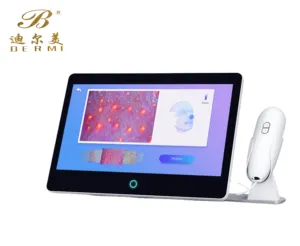





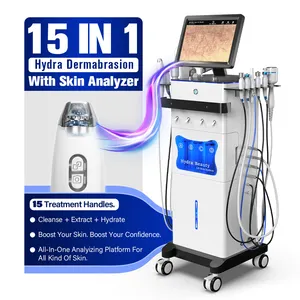


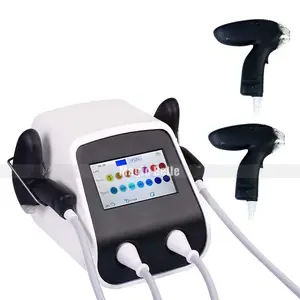



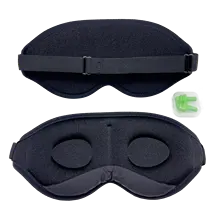










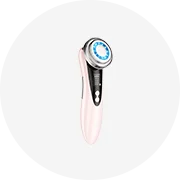















 浙公网安备 33010002000092号
浙公网安备 33010002000092号 浙B2-20120091-4
浙B2-20120091-4